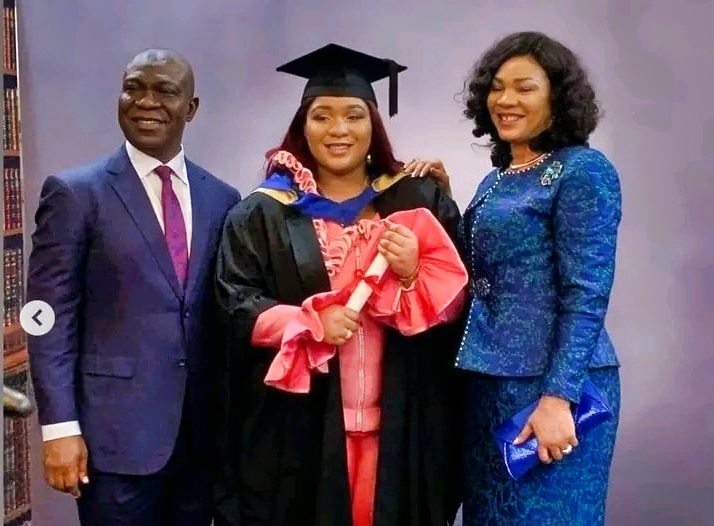After bringing a man to the UK from Lagos, a wealthy Nigerian politician, his wife, and his “middleman” were convicted for an organ-trafficking plan.
The Old Bailey heard that Senator Ike Ekweremadu, 60, and his wife Beatrice, 56, wanted a replacement kidney for their 25-year-old daughter Sonia.
The two, together with Dr. Obinna Obeta, 50, had previously been convicted of conspiring to exploit the guy.
It is thought to be the first instance of its kind under modern slavery rules.
The judge labeled Ike Ekweremadu as the “driving force throughout” and sentenced him to nine years and eight months in jail.
Dr. Obeta was sentenced to ten years in prison after the judge determined that he had targeted a potential donor who was young, poor, and vulnerable.
Due to her more restricted role, Beatrice Ekweremadu was sentenced to four years and six months in prison.
Their victim, a destitute Lagos street vendor, was taken to the UK to donate a kidney to Ekweremadus’ daughter.
In fear for his life, he ran to a police station precisely a year ago to report what had happened when the Royal Free Hospital halted the private £80,000 procedure.
Mr. Justice Johnson acknowledged Ike Ekweremadu’s “substantial fall from grace” during a televised sentence hearing.
He contrasted the politician, who had numerous residences, domestic staff, cleaners, chefs, and drivers, with the victim, who couldn’t afford a £25 ticket to Abuja.
Obeta, he alleged, misled medics by claiming the young donor was a relative of the senator’s daughter in desperate need of a transplant.
The three had had a “significant and long-term impact on his daily life,” according to the potential donor.
“People trafficking across international borders to harvest human organs is a form of slavery,” the court added.
The 21-year-old Nigerian market trader, who cannot be identified for legal reasons, told the court in a victim’s personal statement that he used to “pray every day” for the opportunity to come to the UK to work or study.
He stated that he agreed to medical tests in Lagos and consultations with doctors in London in order to “make it happen,” believing that they were required for his UK visa during the Covid epidemic.
The 21-year-old said he didn’t realize what was going on until he visited physicians at London’s Royal Free Hospital who started talking about a kidney transplant.
He informed the judge that he would not have agreed, adding, “My body is not for sale.”
According to his lawyer in Nigeria, the victim is currently receiving assistance from a charity in the United Kingdom.
In his statement, he stated that he “can’t think of going home to Nigeria” because “these people are extremely powerful and I am concerned for my safety.”
He also refused to seek restitution from the Ekweremadu family, telling a detective that he “did not need or want anything from the bad people.”
Prosecutor Hugh Davies KC stated that all three defendants were guilty of trafficking with the highest level of culpability.
The Crown Prosecution Service’s (CPS) Lynette Woodrow, deputy chief crown prosecutor, and national modern slavery lead, claimed it was “our first conviction for trafficking for the purposes of organ removal in England and Wales.”
She stated that it demonstrated an important legal concept that rendered it immaterial whether the victim of human trafficking was aware he was going to the UK to contribute a kidney.
“The consent of the person trafficked is no defense in any trafficking offense,” Ms. Woodrow added. You cannot consent to your own exploitation, according to the law.”









